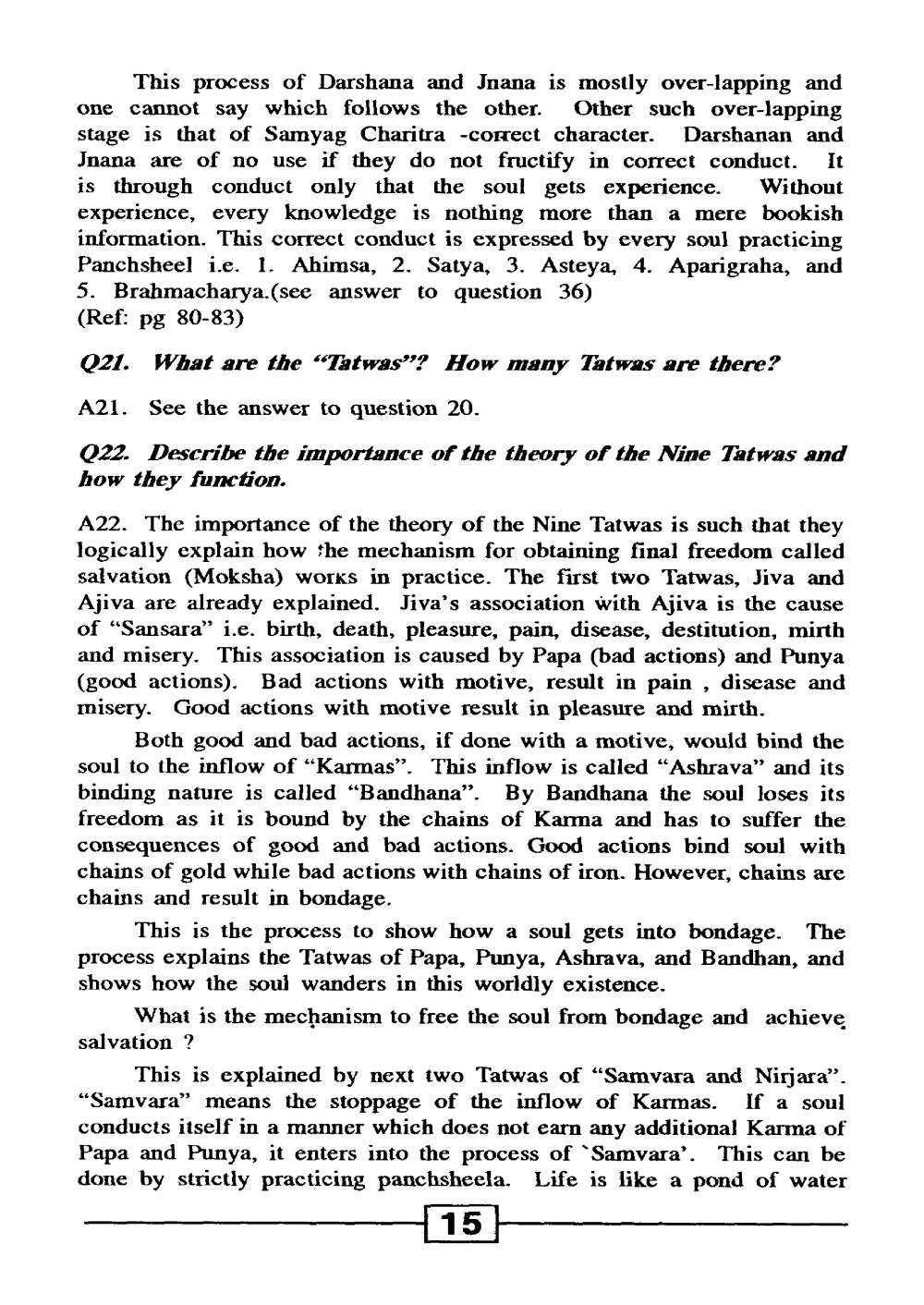________________
This process of Darshana and Jnana is mostly over-lapping and cannot say which follows the other. Other such over-lapping stage is that of Samyag Charitra -correct character. Darshanan and Jnana are of no use if they do not fructify in correct conduct. It is through conduct only that the soul gets experience. Without experience, every knowledge is nothing more than a mere bookish information. This correct conduct is expressed by every soul practicing Panchsheel i.e. 1. Ahimsa, 2. Satya, 3. Asteya, 4. Aparigraha, and 5. Brahmacharya.(see answer to question 36)
(Ref: pg 80-83)
Q21. What are the "Tatwas"? How many Tatwas are there?
A21. See the answer to question 20.
Q22. Describe the importance of the theory of the Nine Tatwas and how they function.
A22. The importance of the theory of the Nine Tatwas is such that they logically explain how the mechanism for obtaining final freedom called salvation (Moksha) works in practice. The first two Tatwas, Jiva and Ajiva are already explained. Jiva's association with Ajiva is the cause of "Sansara" i.e. birth, death, pleasure, pain, disease, destitution, mirth and misery. This association is caused by Papa (bad actions) and Punya (good actions). Bad actions with motive, result in pain, disease and misery. Good actions with motive result in pleasure and mirth.
Both good and bad actions, if done with a motive, would bind the soul to the inflow of "Karmas". This inflow is called "Ashrava" and its binding nature is called "Bandhana". By Bandhana the soul loses its freedom as it is bound by the chains of Karma and has to suffer the consequences of good and bad actions. Good actions bind soul with. chains of gold while bad actions with chains of iron. However, chains are chains and result in bondage.
This is the process to show how a soul gets into bondage. The process explains the Tatwas of Papa, Punya, Ashrava, and Bandhan, and shows how the soul wanders in this worldly existence.
What is the mechanism to free the soul from bondage and achieve salvation?
This is explained by next two Tatwas of "Samvara and Nirjara". "Samvara" means the stoppage of the inflow of Karmas. If a soul conducts itself in a manner which does not earn any additional Karma of Papa and Punya, it enters into the process of `Samvara'. This can be done by strictly practicing panchsheela. Life is like a pond of water
15




